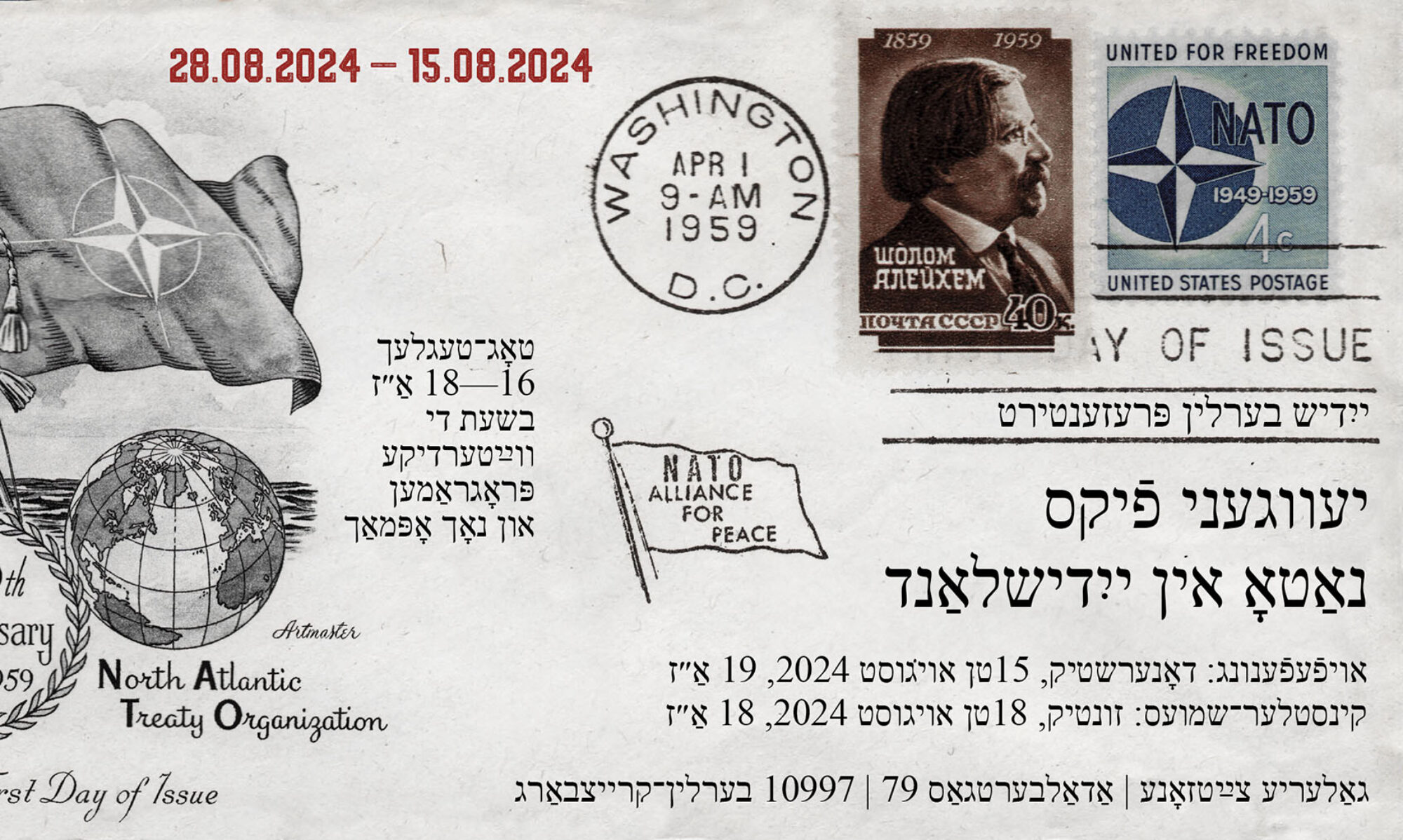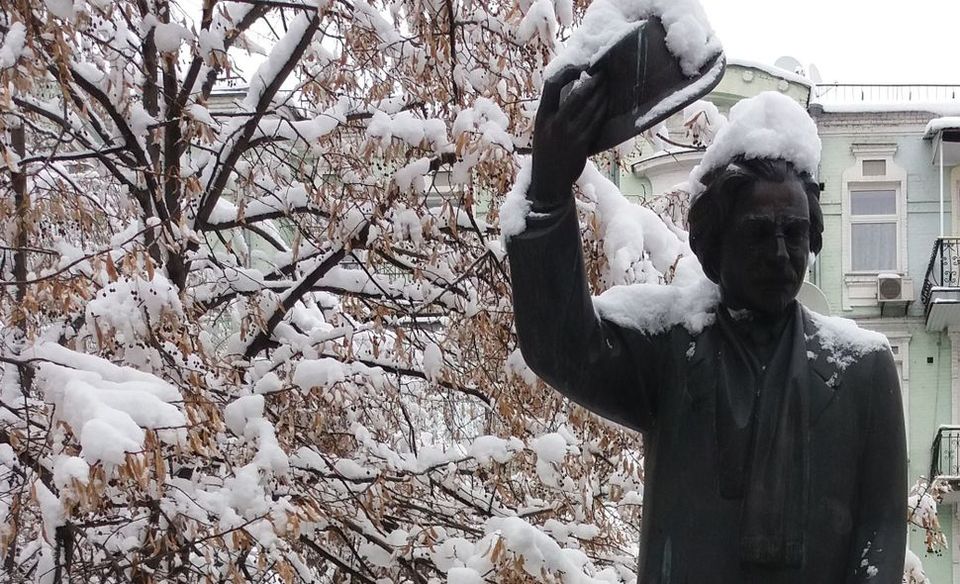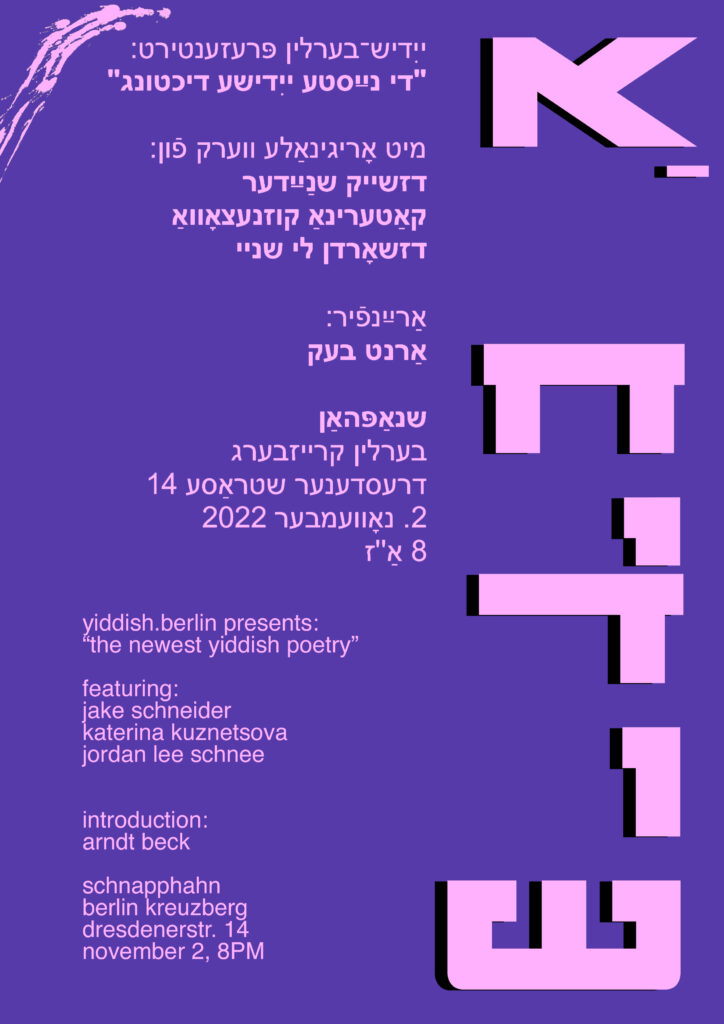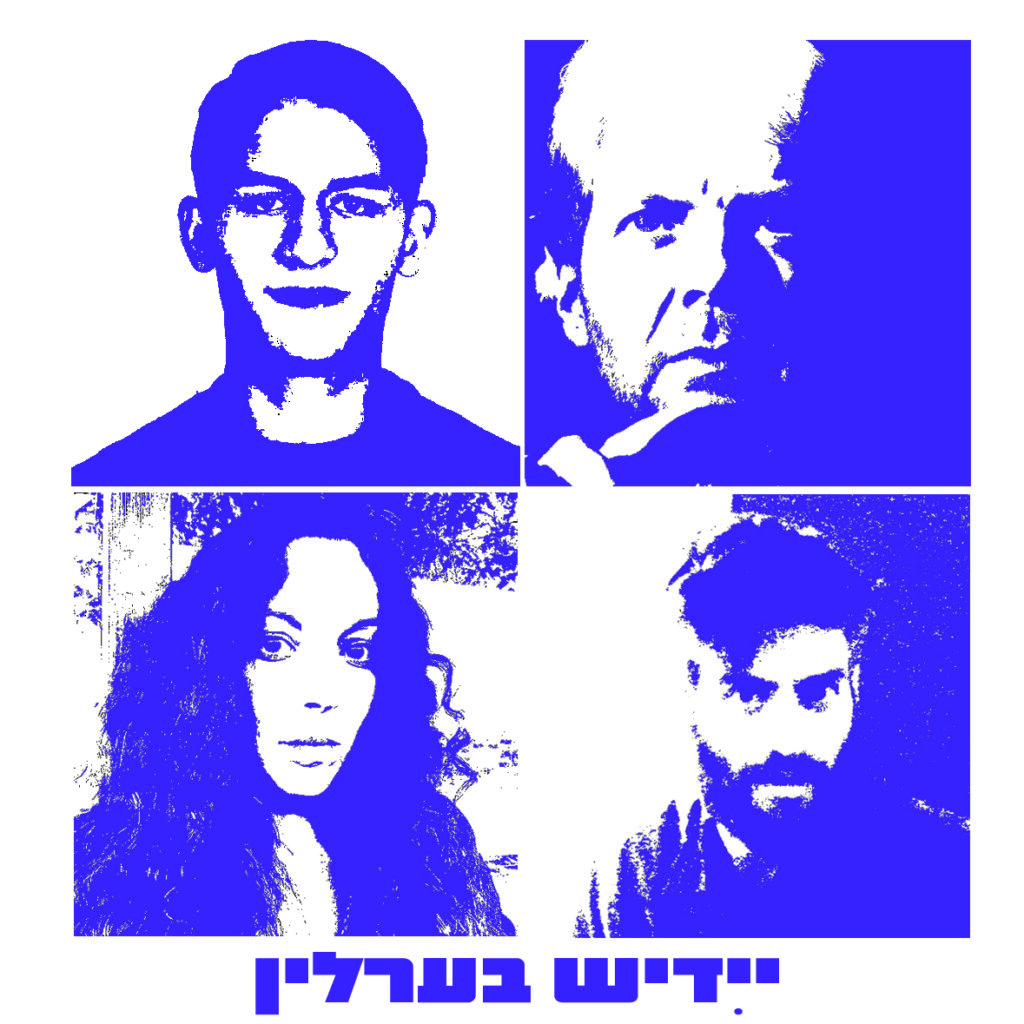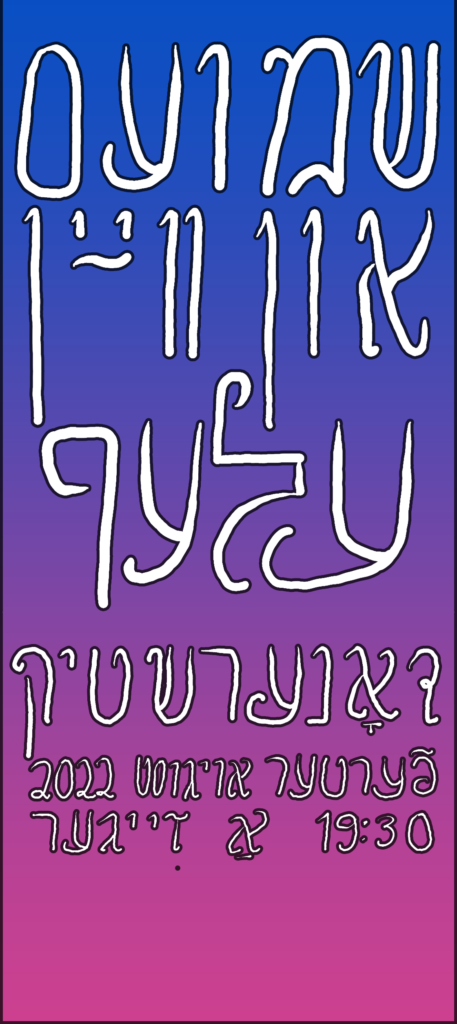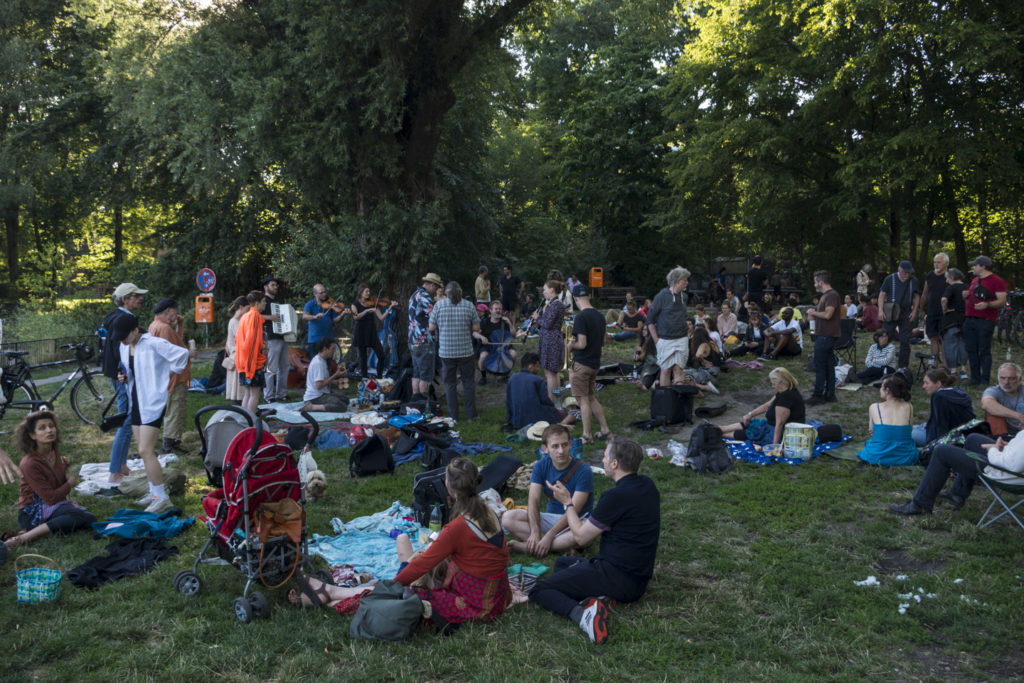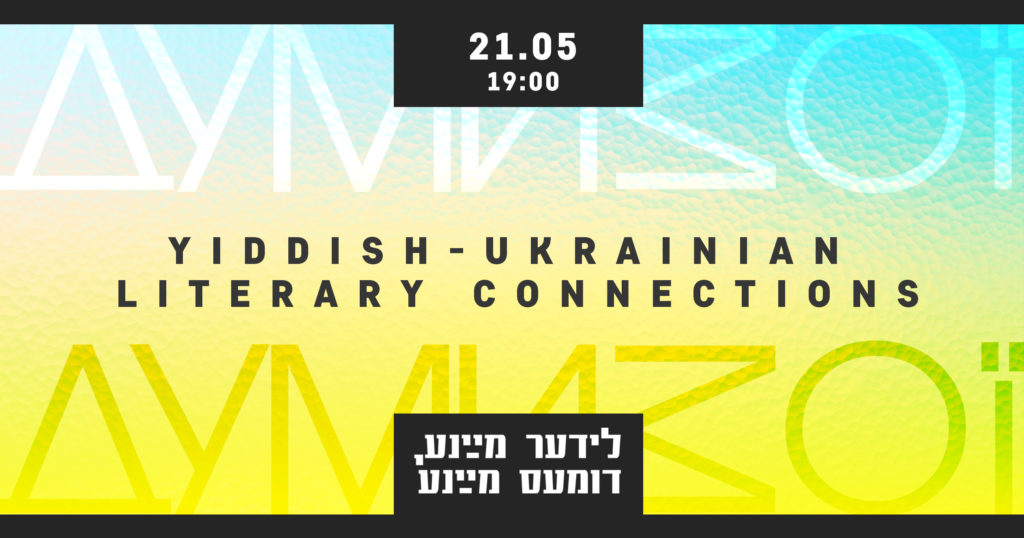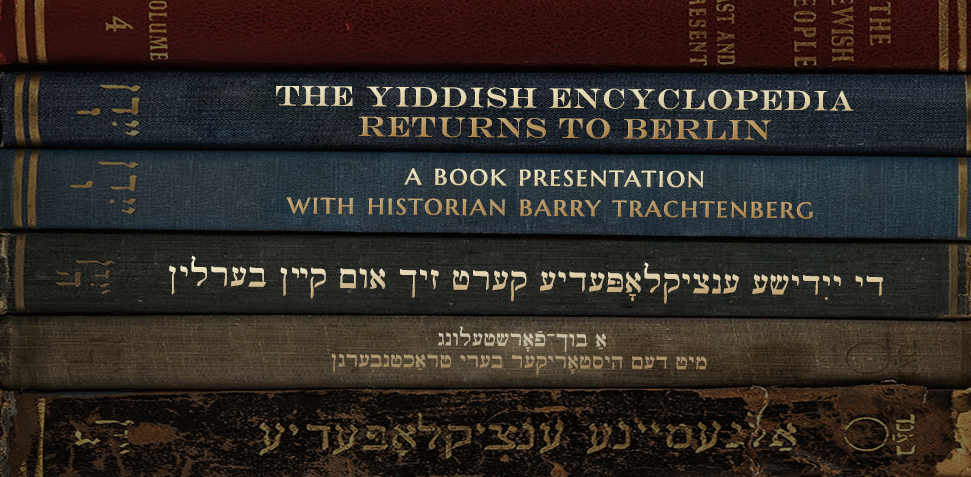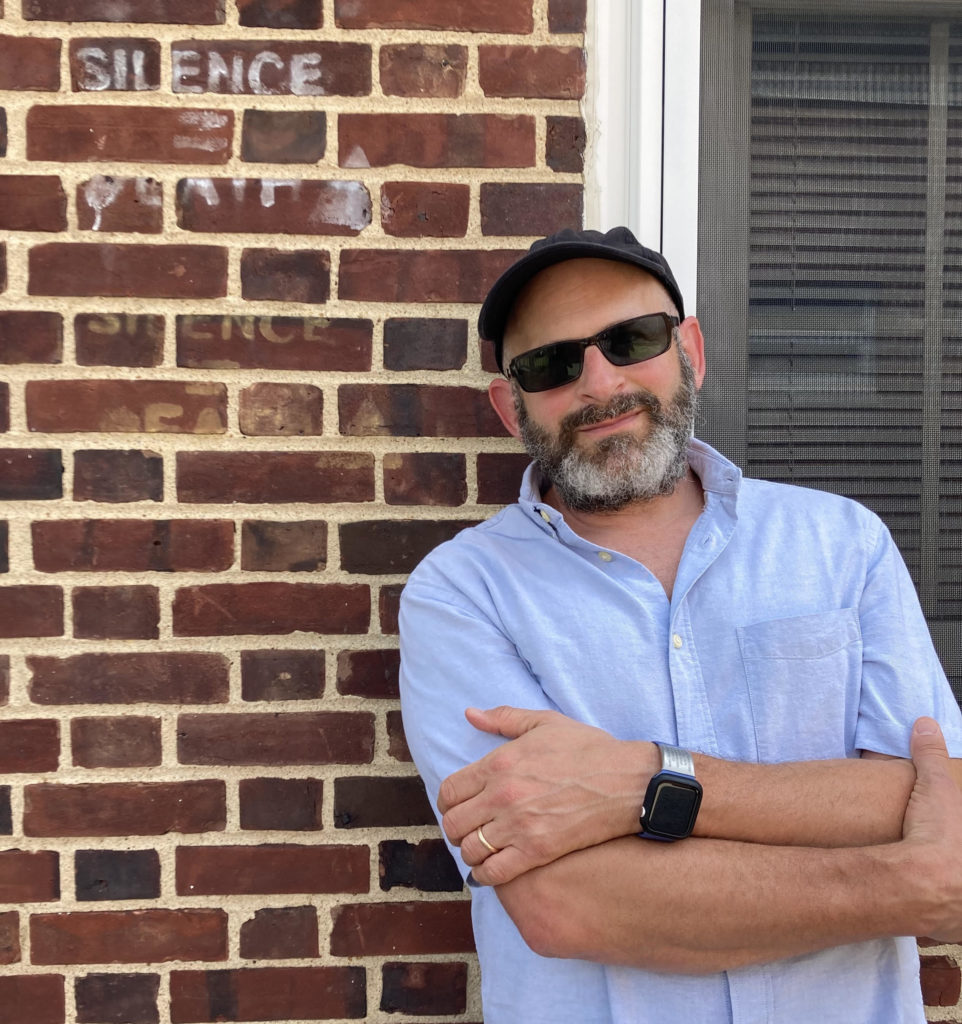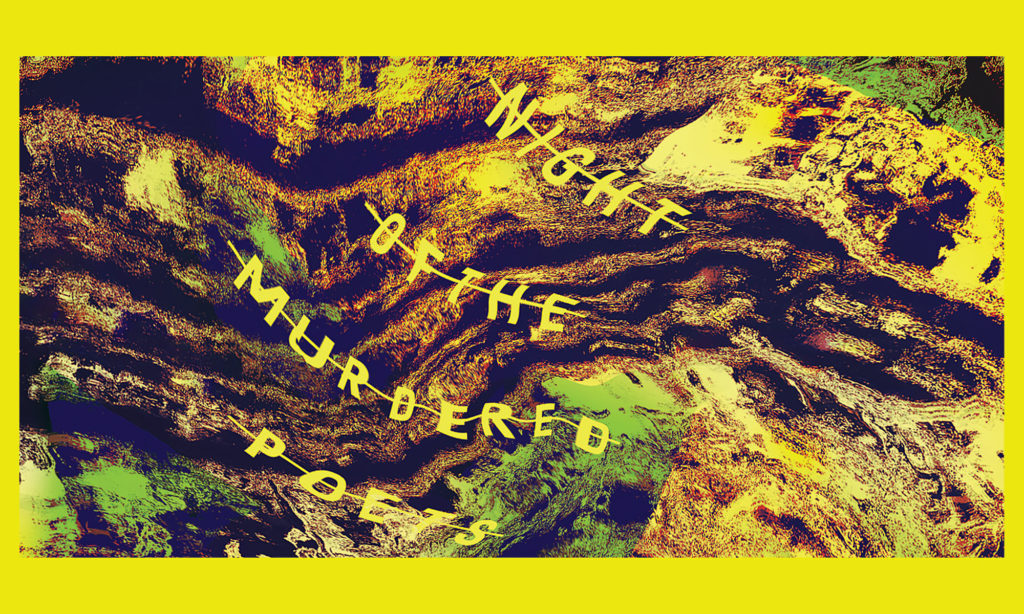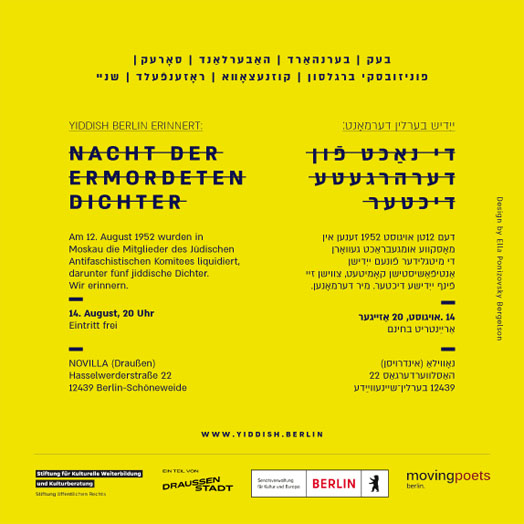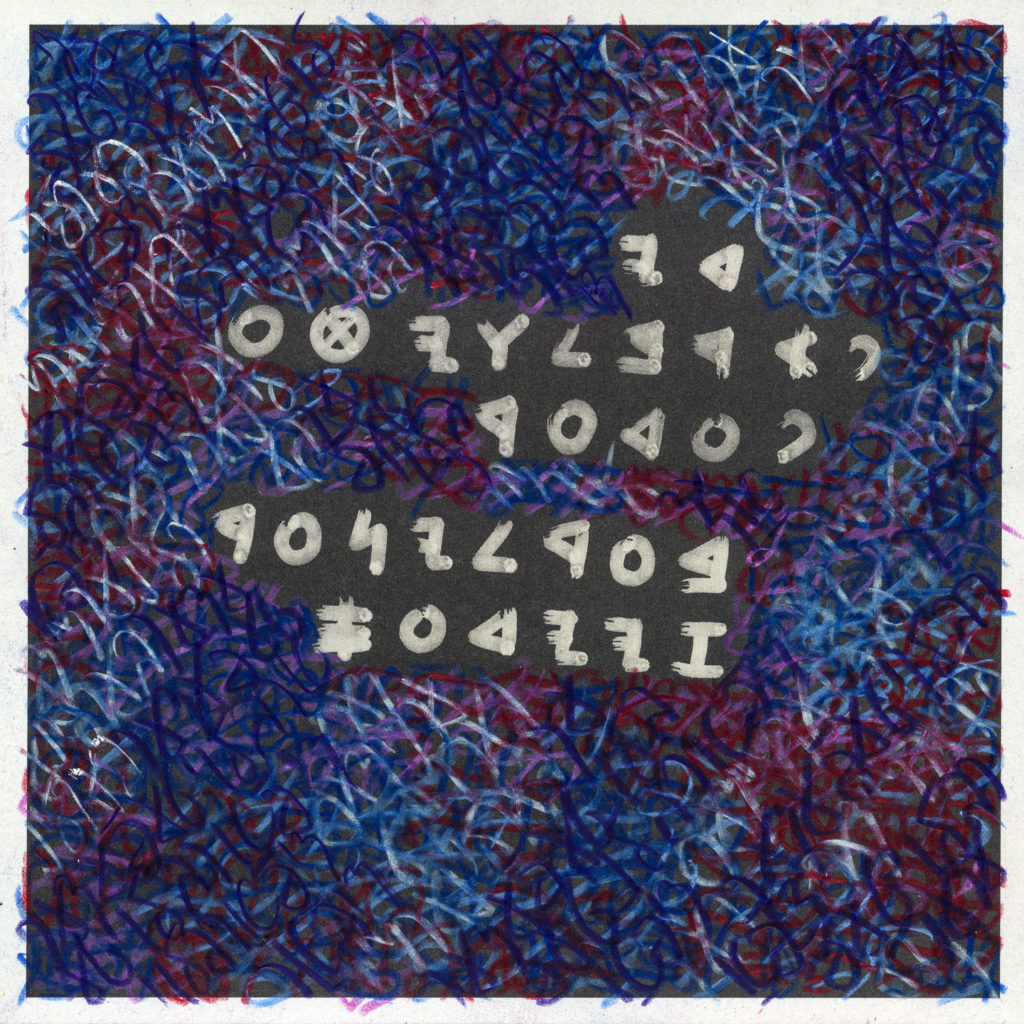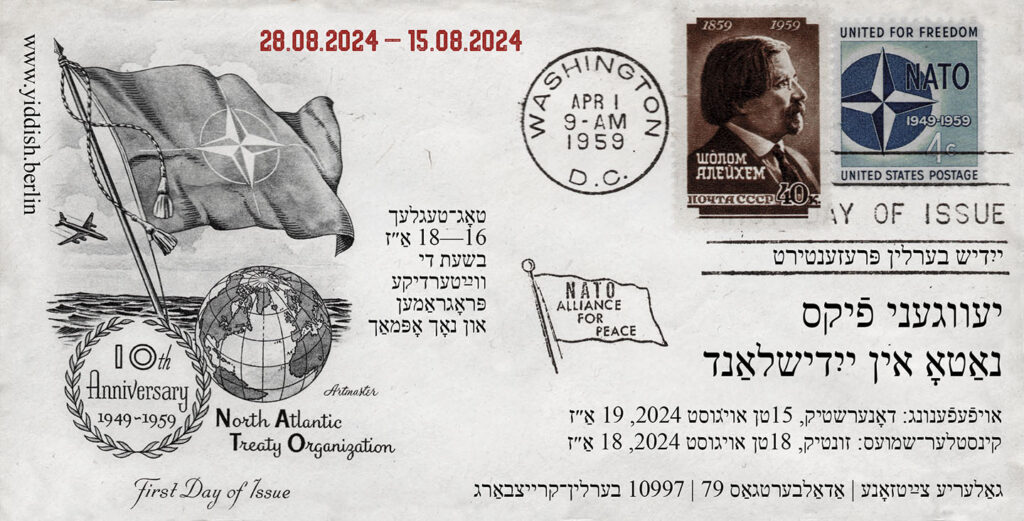
15 Aug 2024 — 28 Aug 2024
Yiddish.Berlin presents:
Yevgeniy Fiks
NATO in Yiddishland
NATO in Yiddishland, an exhibition by Yevgeniy Fiks, satirizes and deconstructs the deadly pathos of fervent nationalism, patriotism, and militarism. It insists on the non-state concept of Yiddishland as an urgent alternative. Yiddishland does not claim land or territory. NATO in Yiddishland reflects on the artificiality of national divisions from the standpoint of Yiddish culture and Ashkenazic civilization in Europe, and demands diasporism, cosmopolitanism, hyphenated identities, and multilingualism.
***
This exhibition also marks Yiddish.Berlin’s 5-year anniversary. During this time, many people have invested their idealism, creativity, and priceless unpaid labor into cultivating the fertile ground on which a new Yiddish community has been growing in Berlin. Due to a last-minute loss of expected funding, we have now put forward the money for this exhibition out of pocket, which we unfortunately cannot afford ourselves. Your donation would help pay for our two weeks´ rent at the gallery, installation costs, live performances and presentations at the events, and making sure that there is someone in the gallery every day who can explain the concept of “Yiddishland” to anyone who walks in off the street. A sheynem dank!
[Yiddish.Berlin remains an independent group without a registered legal status. That is why we are collecting donations via a private account.]
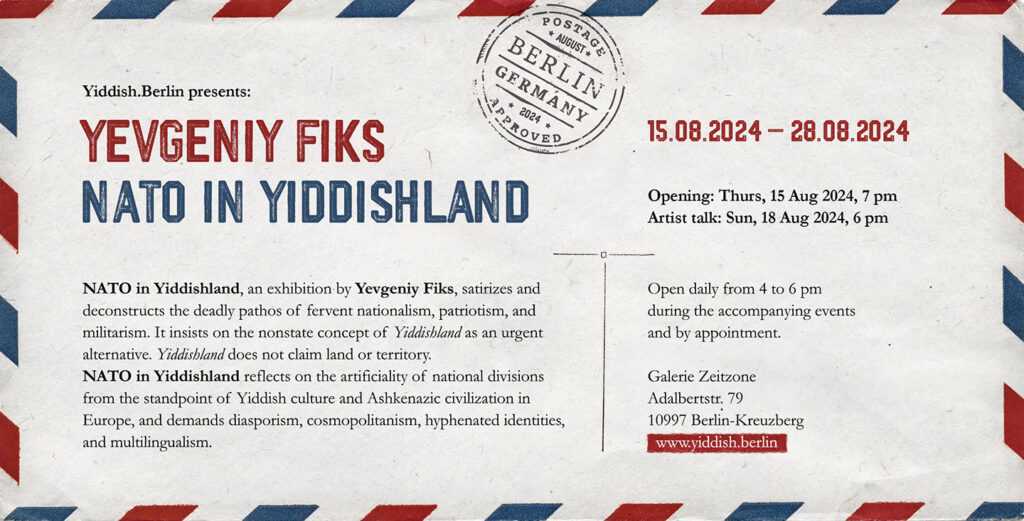
Opening: Thurs, 15 Aug 2024, 7 pm
Attended by the artist Yevgeniy Fiks
Music: Zhenja Oks
Artist talk: Sun, 18 Aug 2024, 6 pm
With Yevgeniy Fiks, along with a visual retrospective on 5 years of Yiddish.Berlin by Arndt Beck
Close reading workshop: Sun, 25 Aug 2024, 5 pm
Pogroms in Soviet Yiddish poetry
With Katerina Kuznetsova
Finissage: Wed, 28 Aug 2024, 7 pm
Open daily from 4 to 6 pm
during the accompanying events
and by appointment.
Galerie Zeitzone
Adalbertstr. 79
10997 Berlin-Kreuzberg
